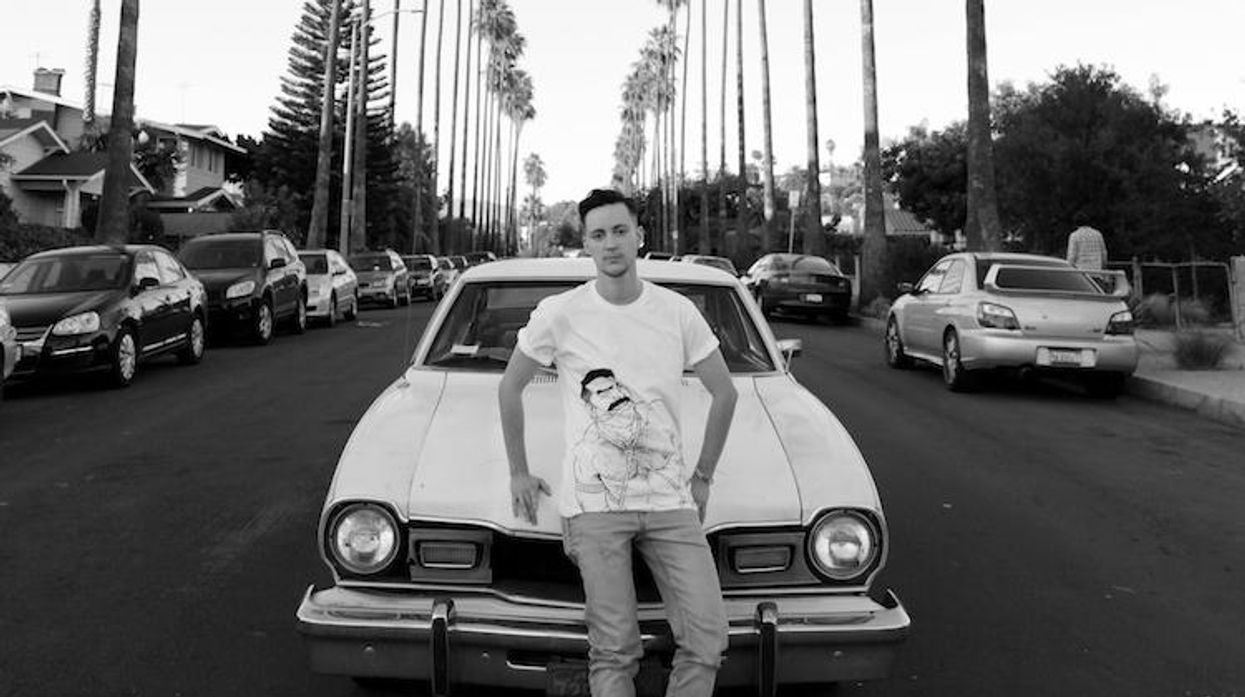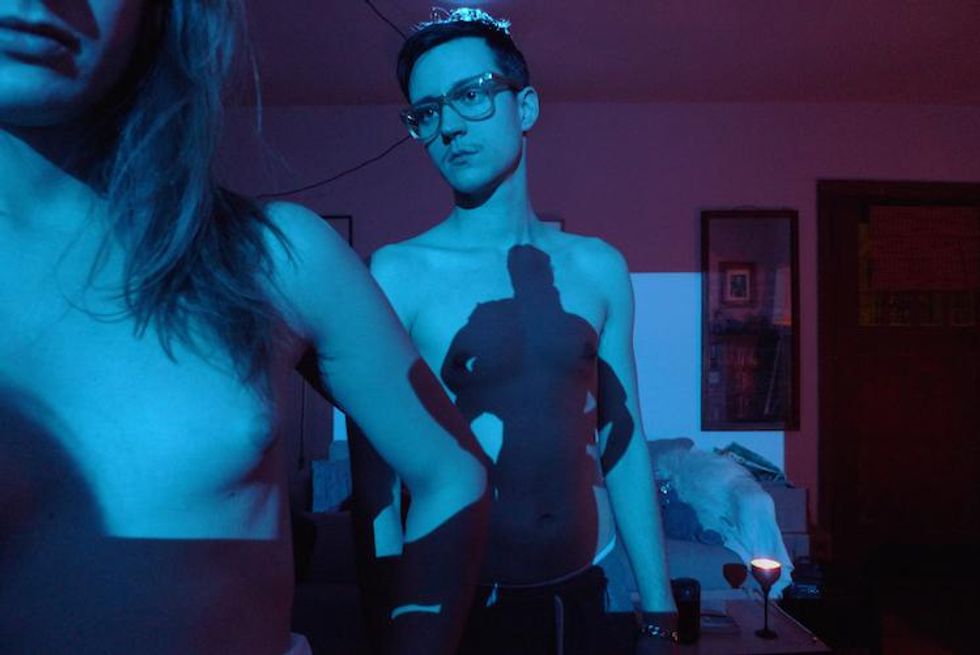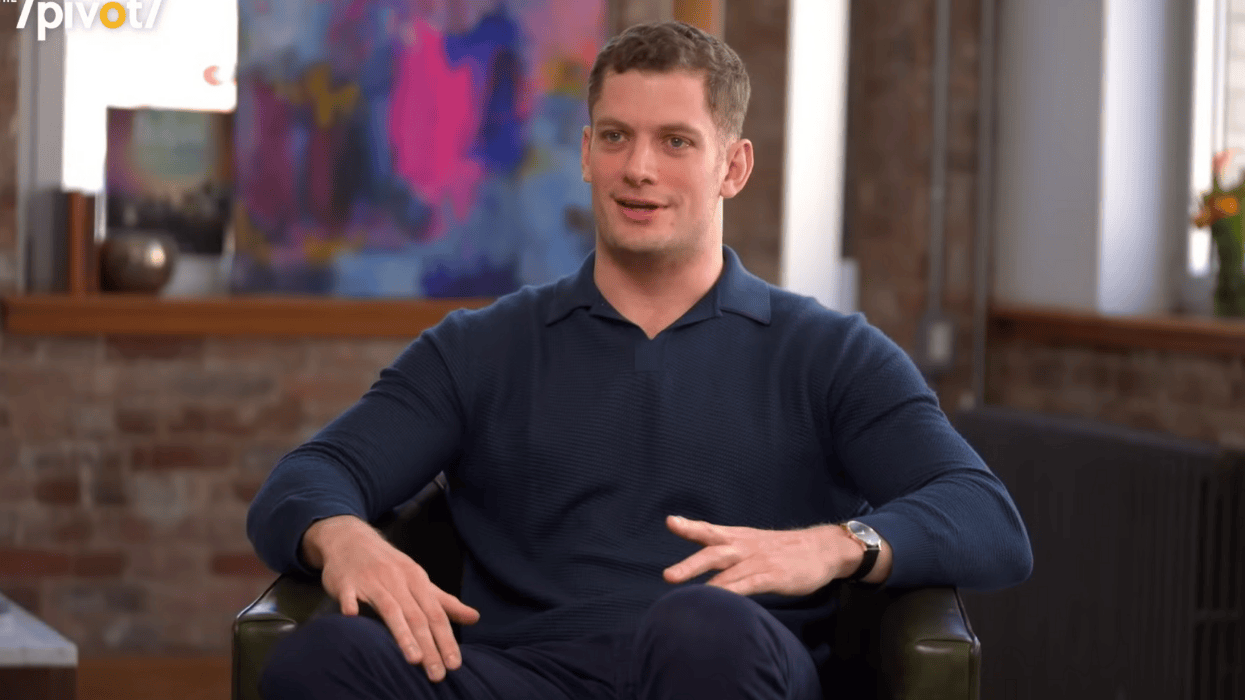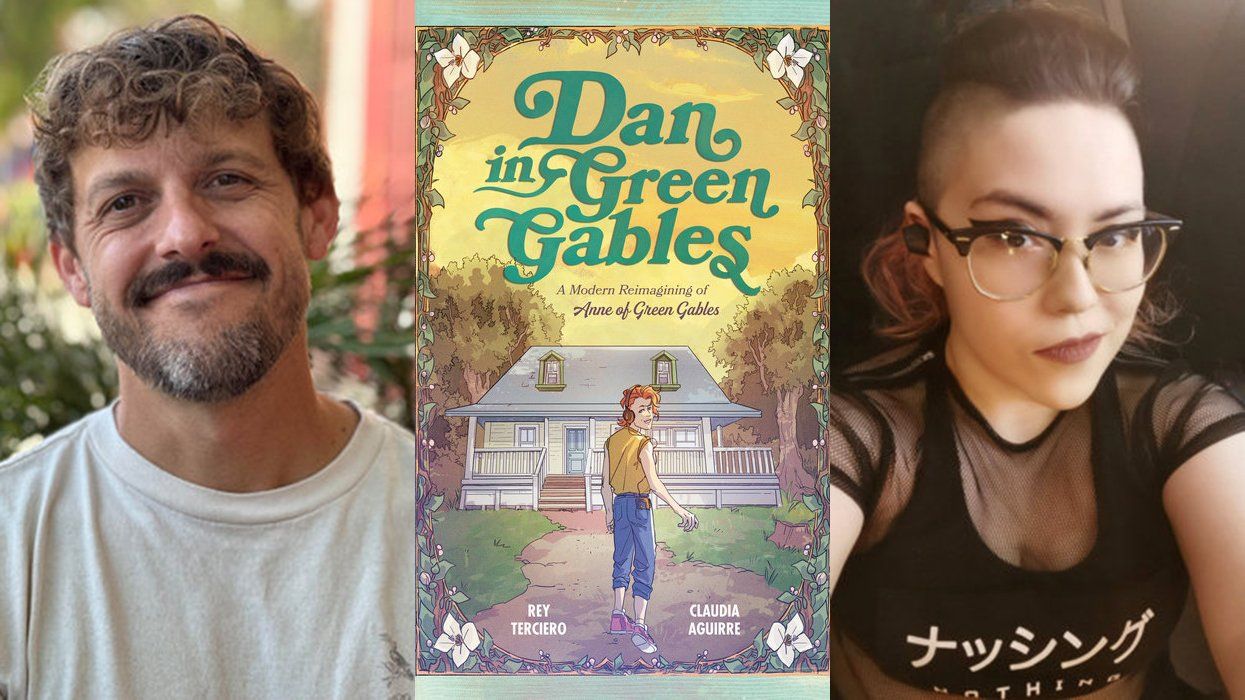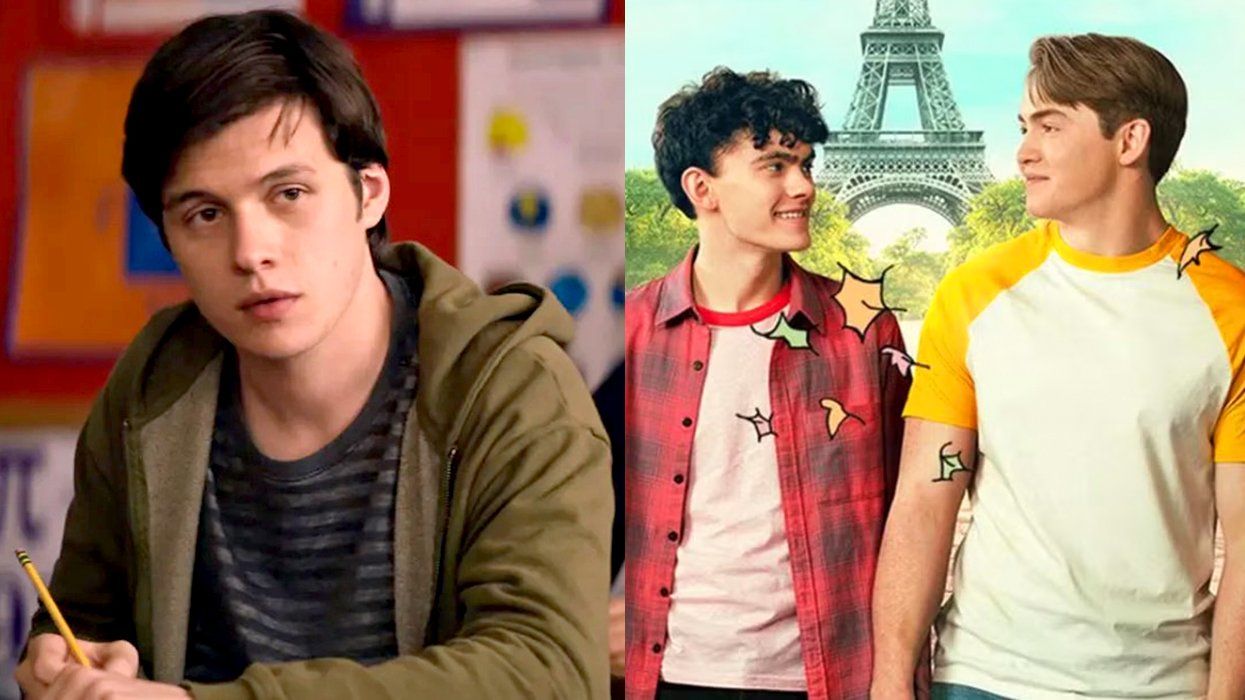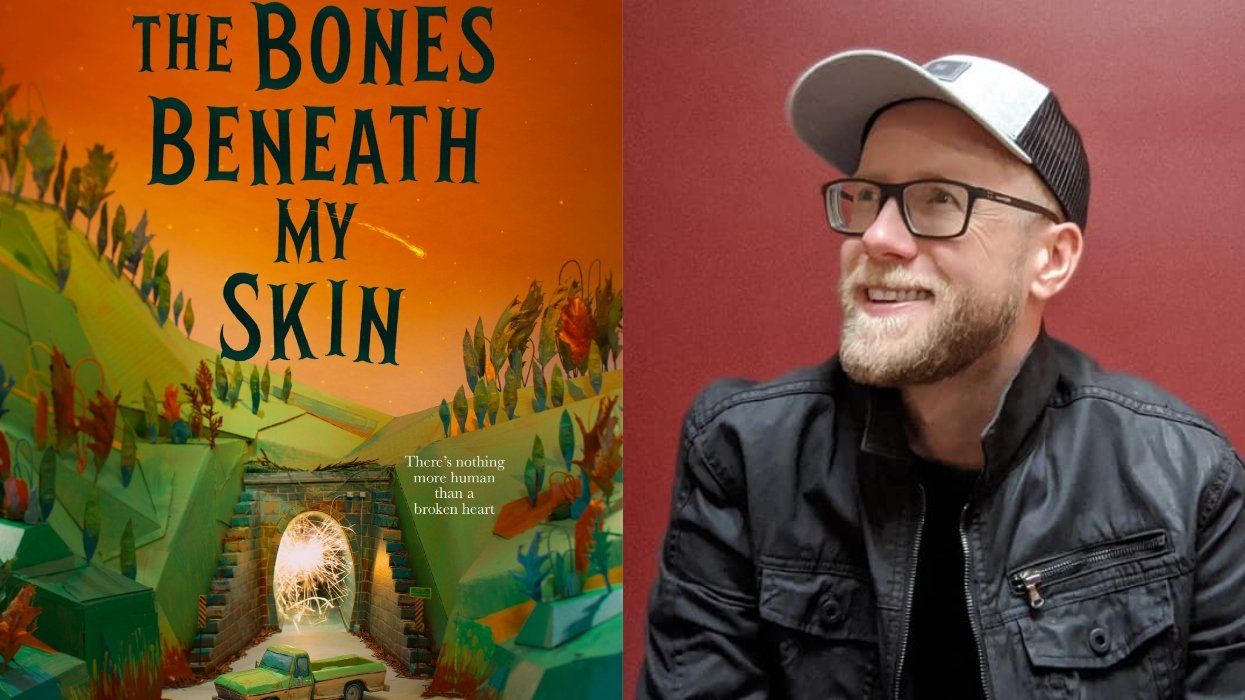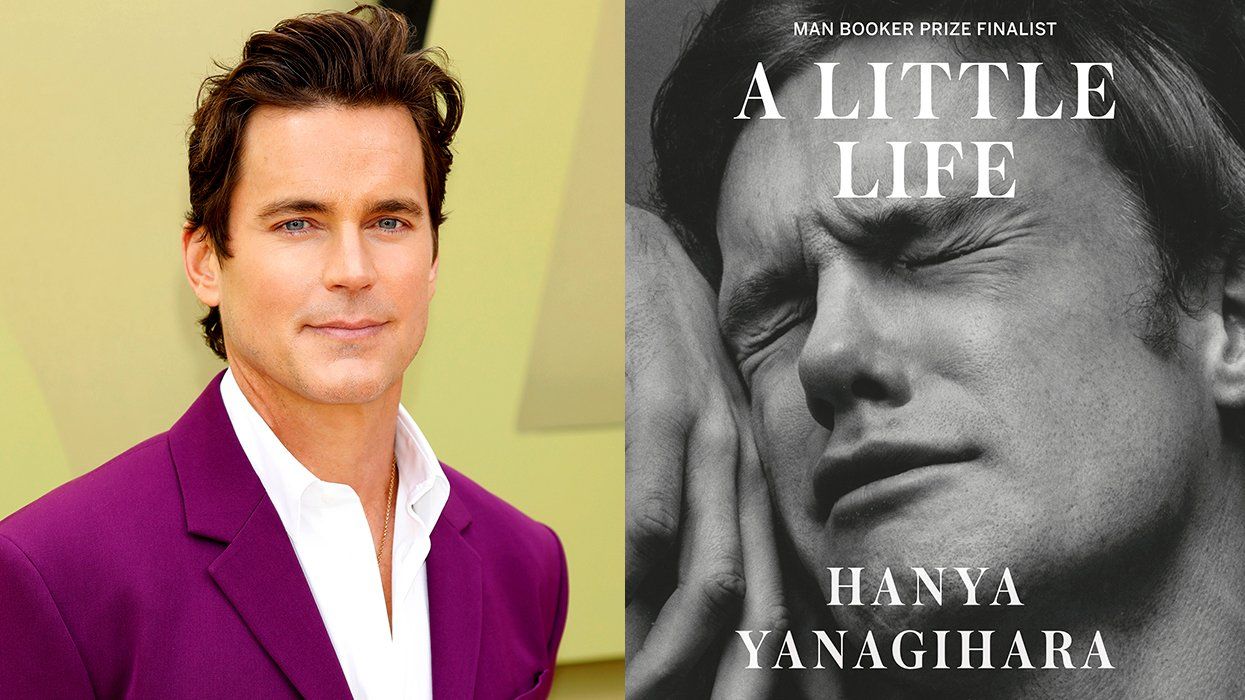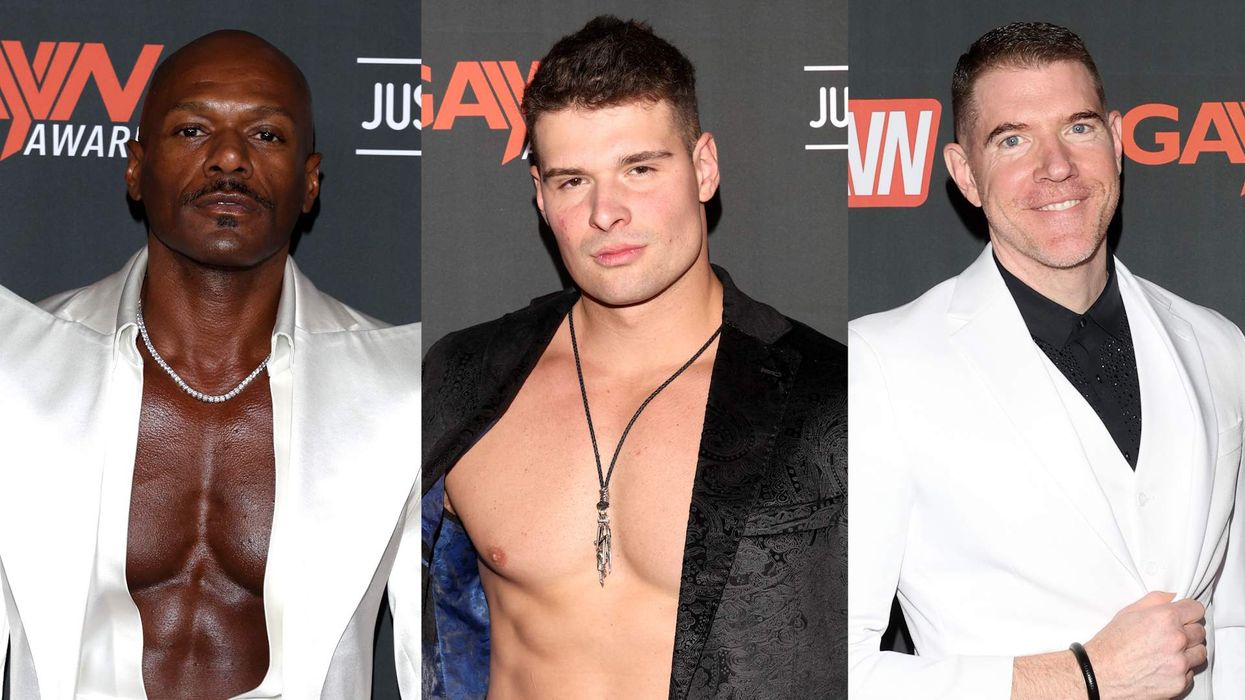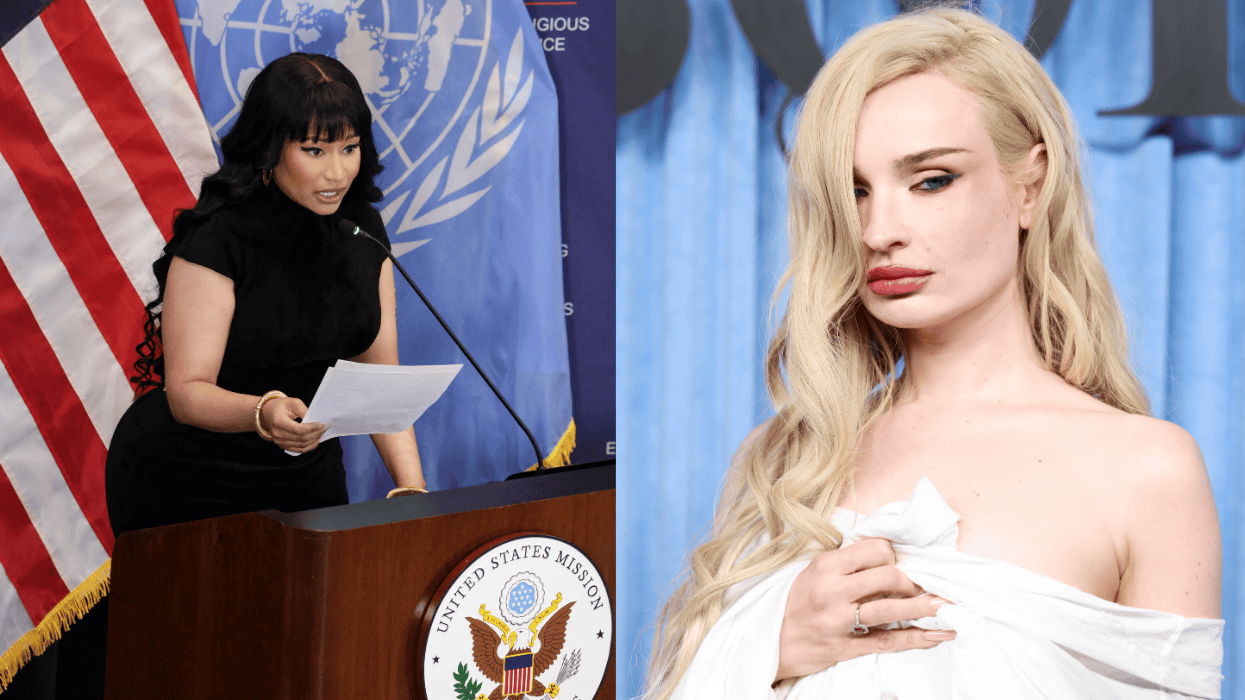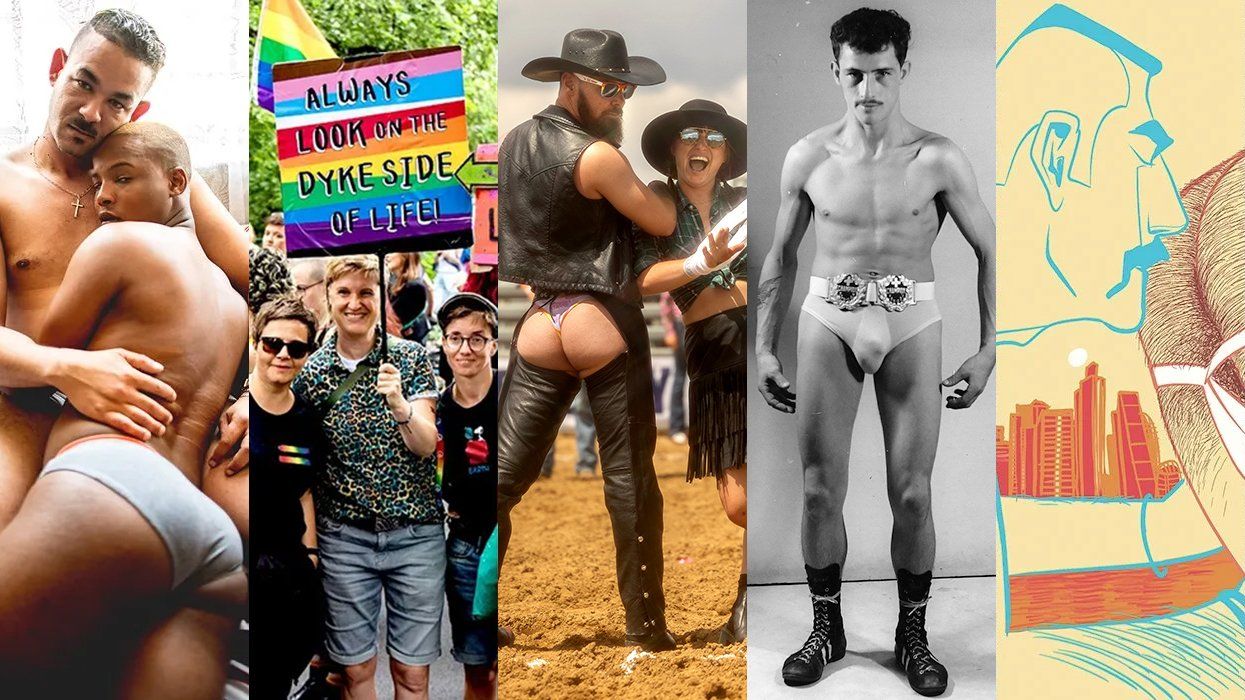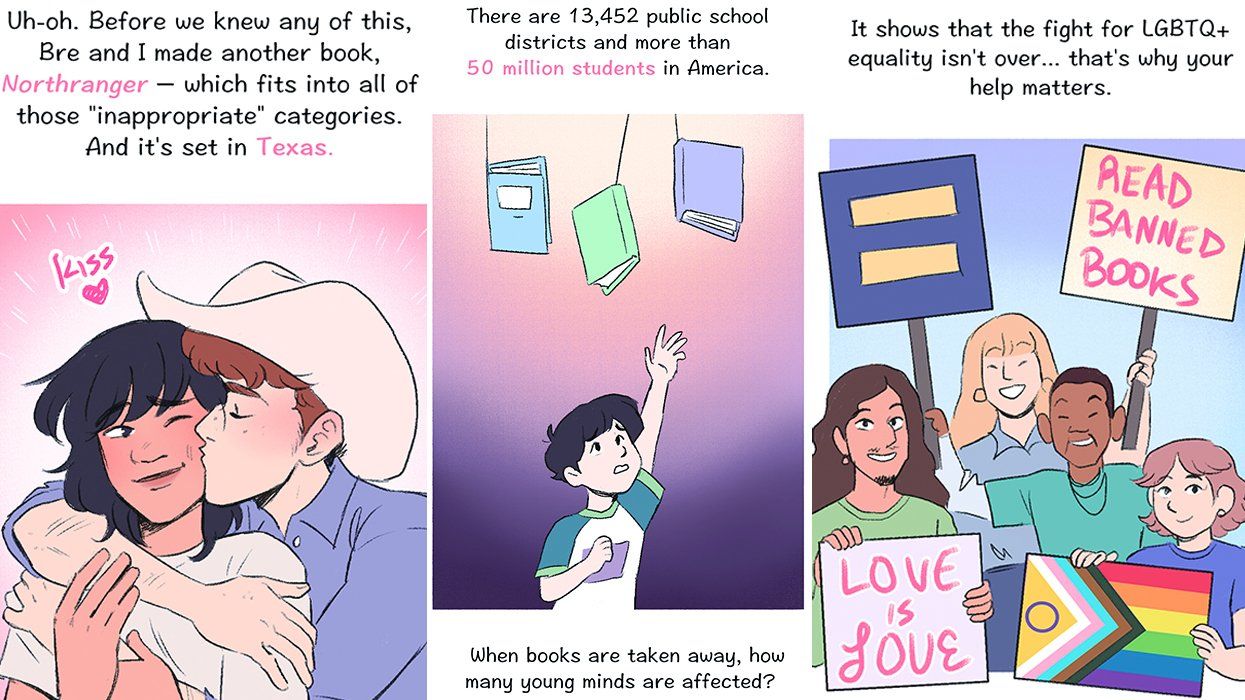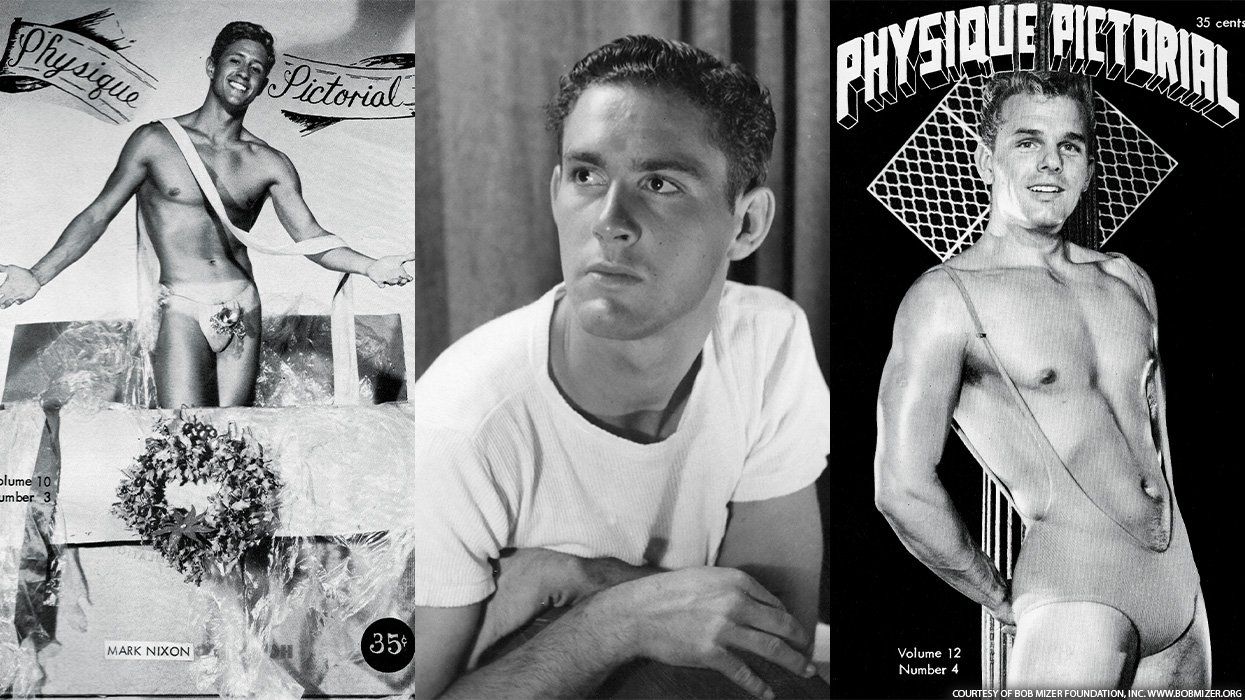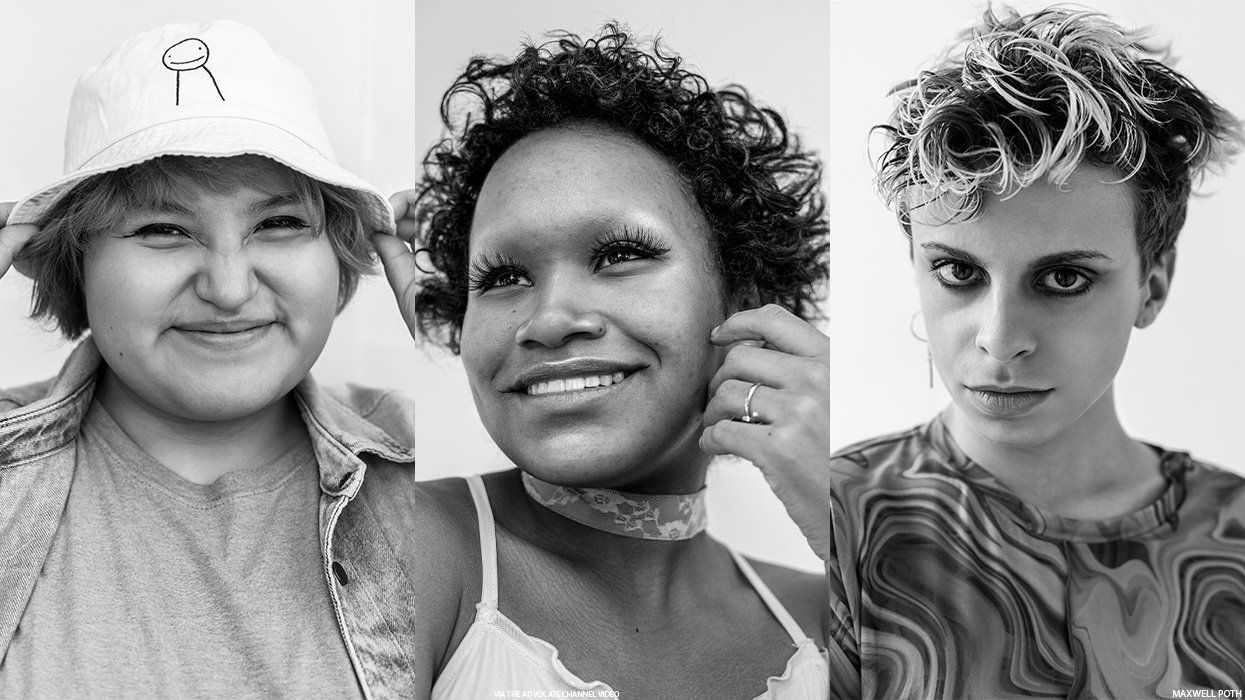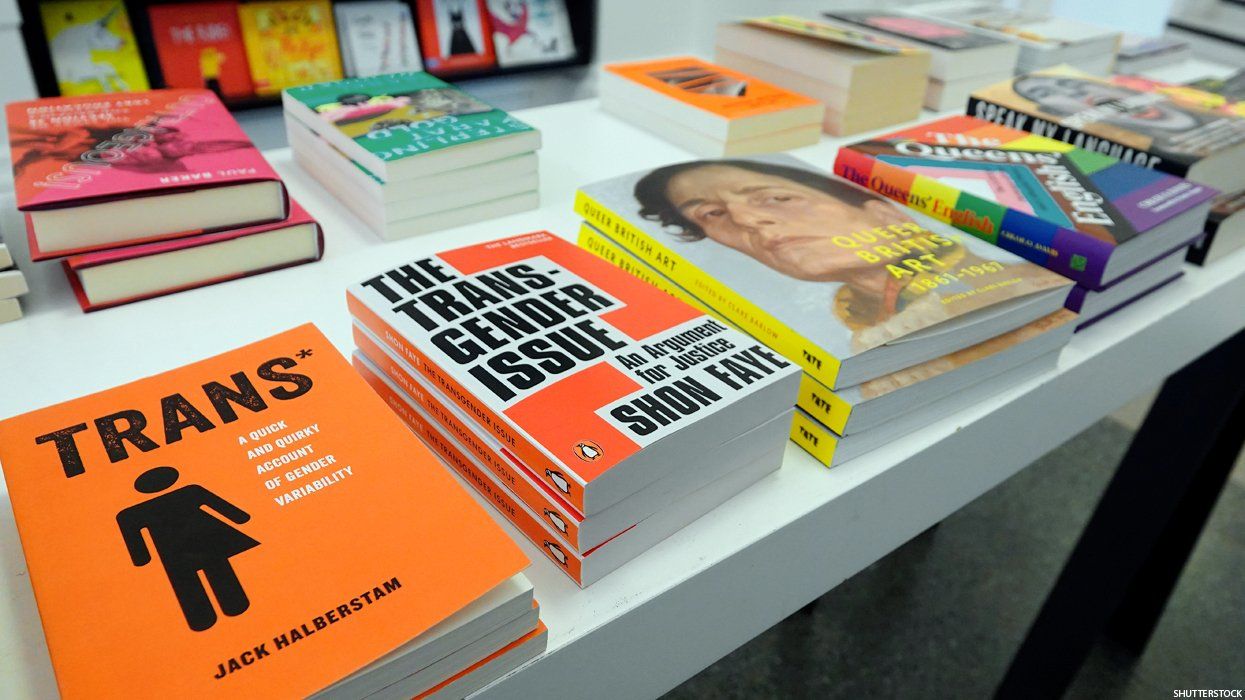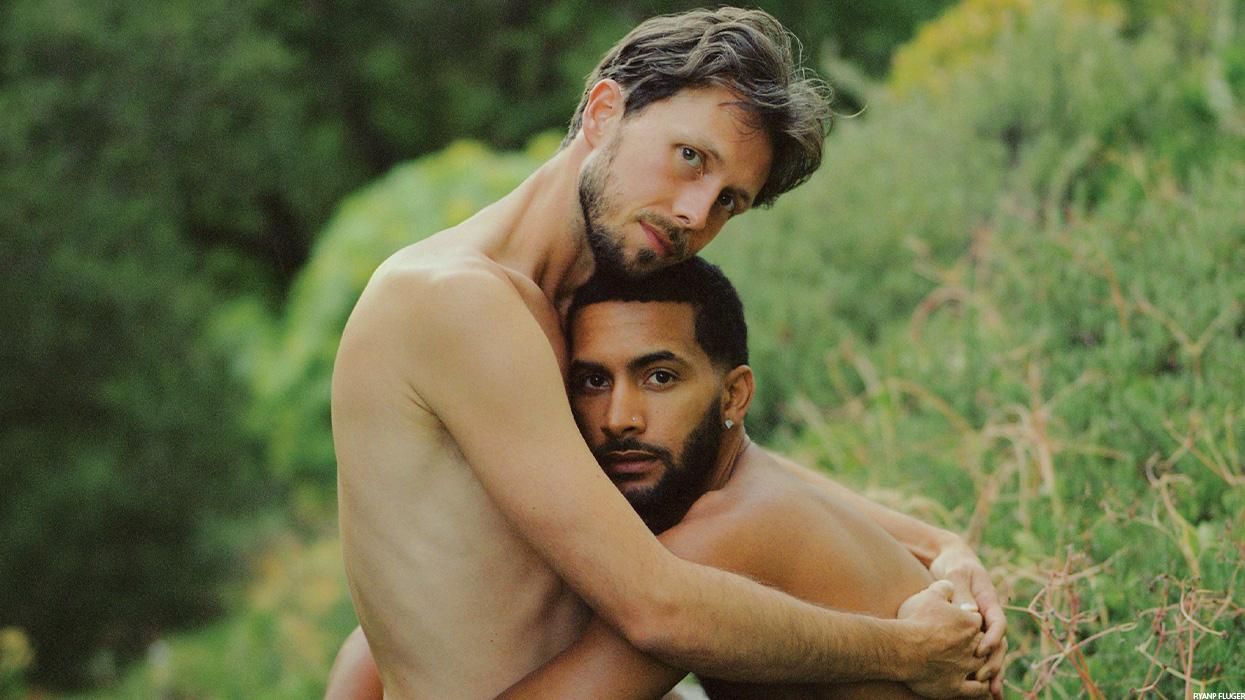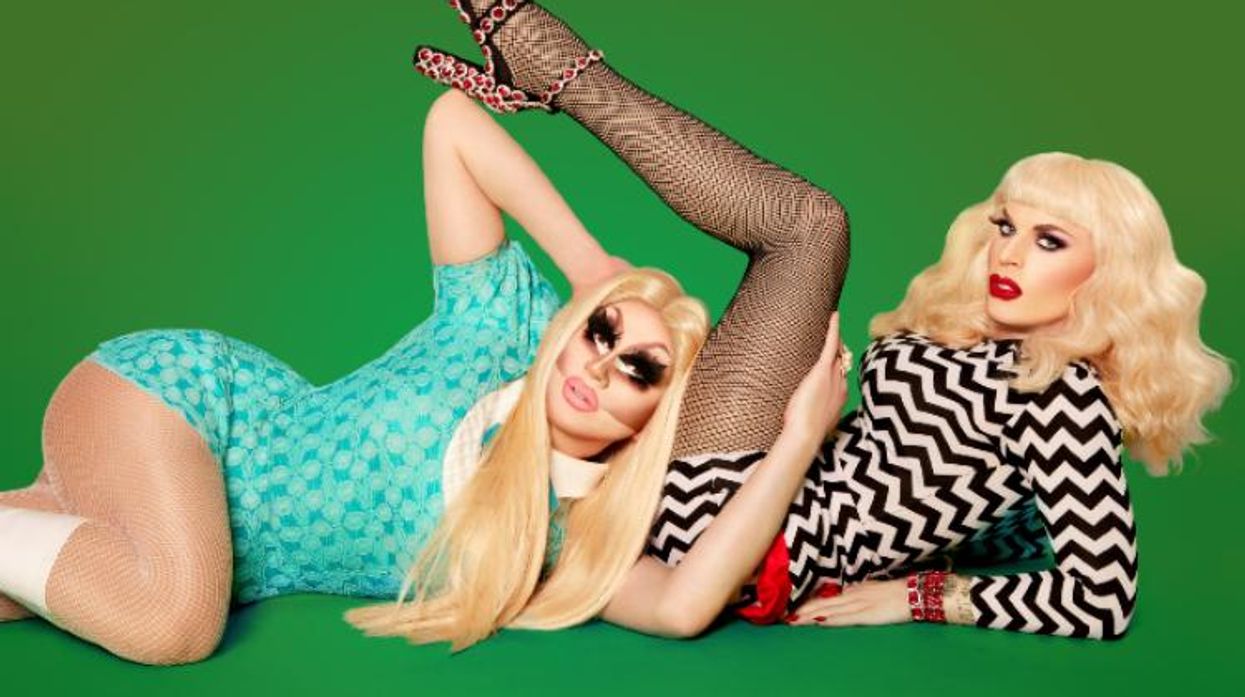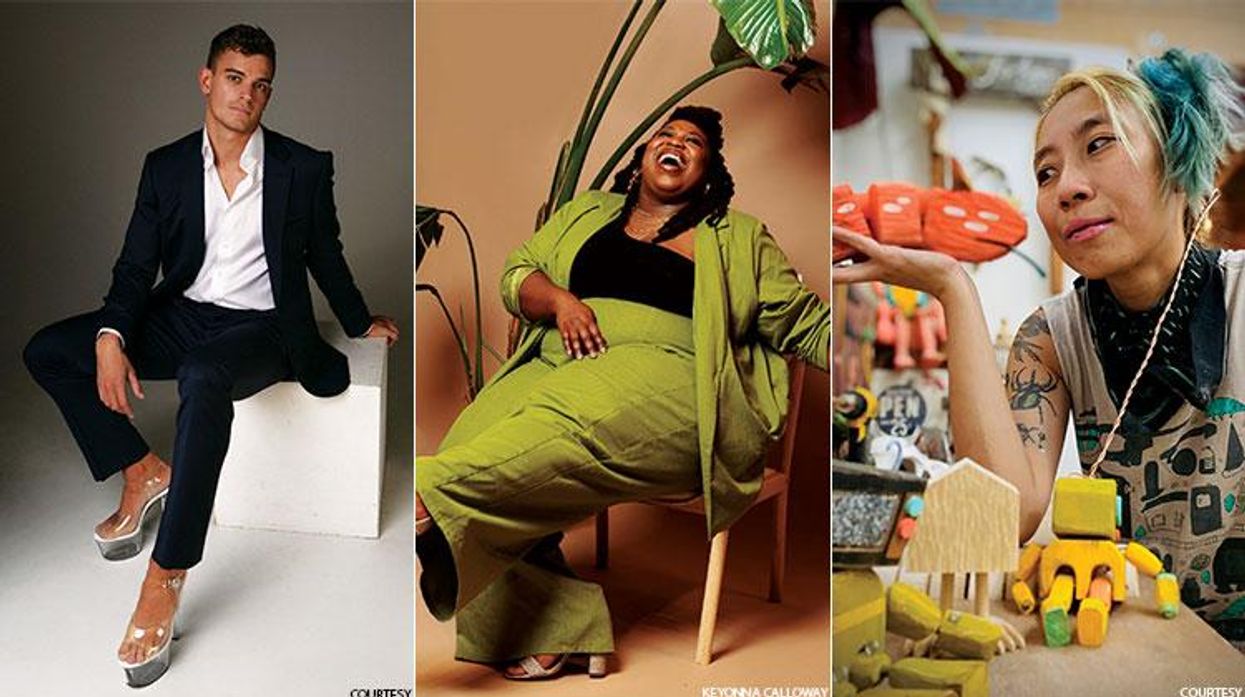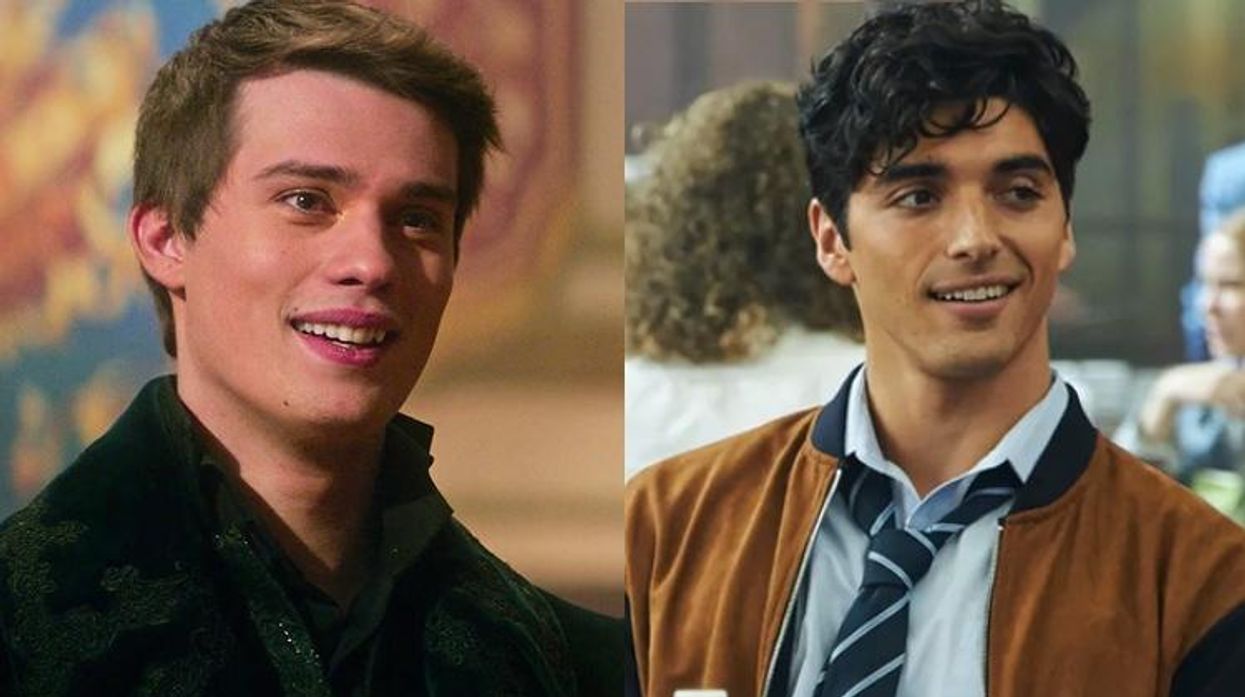It's been a great few years for former Out100 honoree Rhys Ernst. He was part of the 2014 Whitney Biennial and has worked as a producer and consultant for Transparent, the acclaimed Amazon Prime drama. Plus, his short film "Dear Lou Sullivan," which he submitted to Visual AIDS' Day With(out) Art 25th anniversary video program, has received rave reviews. The film utilizes archival footage from an interview with Lou Sullivan, the trans man and AIDS activist largely responsible for establishing the distinction between gender identity and sexual orientation.
Visual AIDS recently spoke with the trailblazing trans artist and filmmaker about his work. Ernst spoke candidly about personal experiences of transphobia and the the numerous reasons transmasculinity is still "wildly" underrepresented and misunderstood. Here, a few select quotes.
Visual AIDS: In "Dear Lou Sullivan," you merge archival footage of transgender activist Lou Sullivan and old-school pornography with contemporary Grindr chats. Why was it important for you to layer the past with the present on-screen in this way?
Rhys Ernst: In his interview, Lou details numerous experiences of body dysphoria and transphobia. He also discusses the joy and fulfillment he experienced as a result of his successful gay sexual experiences. Sex is central to Lou's story--both in how central it was to his gender affirmation, as well as to his death.
If he was a trailblazer in creating a distinction between gender identity and sexual orientation, it's ironic that his male identity was most validated when he was sexually accepted by the gay community. That paradox resonated with me.
Over the course of years I saved screengrabs of my experience of transphobia, ignorance, and debasement on Grindr. It's more often ignorant statements or questions than open harassment (though I've experienced both). My experience of transphobia on MSM apps is not unique--after I began collecting my own screengrabs I discovered a tumblr dedicated to this topic: Trans Men on Grindr. What really blew my mind is how often gay cis men didn't even know what the terms "ftm," "trans man" or "trans" even mean--it's incredible how many cis gay men can live in an insulated bubble and be completely disconnected from the rest of the queer/trans world--this points to a very particular type of cis privilege.
The Grindr screengrabs illustrate how little has changed since Lou's days in how trans men are perceived and treated in the MSM scene.
Zackary Drucker & Rhys Ernst Relationship, #44, 2008-2013, C-Print, 20 x 30 In.
Can you describe the influence of Lou Sullivan, and your process of both being inspired to make the project about Lou and where your research into his life and work took you?
I'm often frustrated by the conspicuous void of visible trans-masculine elders and histories. Thankfully, there's a good deal of trans-feminine history out there, and I've been lucky to have access to amazing trans feminine elders. For a number of complex reasons however, transmasculinity is wildly underrepresented. I learned about Lou Sullivan two years ago from the Heros Issue of Original Plumbing.
As a trans man who primarily dates gay men, finding elders that fit that archetype is a challenge. Lou was all of those things, whilst previously my investigation into the history of this demographic had left me pointedly empty handed. It's almost as if these two identities--gay cis male and gay trans man--have cancelled each other out. The way Lou talks about discovering he had AIDS, and the ways that that diagnosis could be seen as a "success" in being a gay man was really striking to me. He would eventually die of AIDS related illnesses. He referred to his ultimate circumstance as his "poetic justice."
What was the experience on set of Transparent? Any charged or emotional moments to share?
The Transparent set is lovely. It's a group of immensely talented people, no big egos, not a rotten apple in the bunch, doing what they do best. Some of Maura's big scenes have felt really special to be witness to and a part of--when Maura comes out to Sarah in episode 2, or when Sarah and Ali defend Maura in the women's room both come to mind.
It's always amazing when we shoot on location with a bunch of queer and trans actors and extras. The LGBT Center scenes and in particular the "Trans Got Talent" scene were examples of these. Zackary and I cast all the queer and trans background actors from the community, and there would be sometimes 70 or so queer and trans people in a room. Everyone was moved to be a part of it--the trans folks would often say that they had never been around so many other trans people before. There were always gender neutral bathrooms on set, and the whole cast and crew were well versed in trans issues, including gender neutral pronouns, etiquette, etc.
Visual AIDS utilizes art to fight AIDS by provoking dialogue, supporting HIV+ artists, and preserving a legacy, because AIDS is not over. To read the full interview, visit their website. Watch "Dear Lou Sullivan" below:
Rhys Ernst, Dear Lou Sullivan, 2014 from Visual AIDS on Vimeo.


